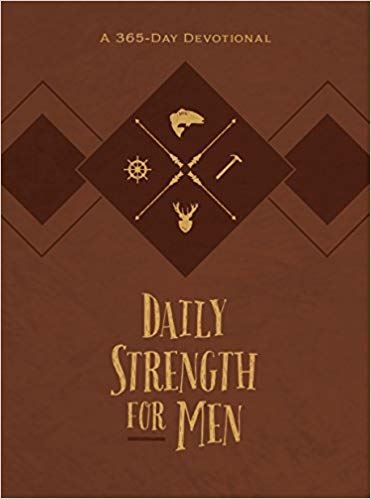Mid-Year Is the Perfect 'Second Chance' to Read Your Bible More

It’s July. The year is more than half over.
If you made a New Year’s resolution, then you probably have broken it by now. After all, fewer than half of those who make resolutions are successful at keeping them for at least six months.
At the beginning of the year, I made the case that the best New Year’s resolution is to read the Bible every day. I made that resolution. I vowed to read the Bible every day this year.
And I failed.
Though we fall...God upholds.
Some people believe that if you follow God and have enough faith then you won’t fail. You won’t suffer calamities or even disappointments. To these people, failing, or falling, is evidence of a lack of faith. If you fall, then it’s your own fault.
David, a man after God’s own heart (Acts 13:22), had his share of “falls.” Some of these certainly were David’s fault, but many were not. In Psalm 37, as an old man, David states from experience that, even when you are a consistent follower of God, you still will fall. But God will be at your side:
The steps of a man are established by the Lord, when he delights in his way; though he fall, he shall not be cast headlong, for the Lord upholds his hand. – Psalm 37:23-24
God gives us second chances. When we rely on Him, we can fulfill a Japanese proverb: Fall seven times. Stand up eight.
Here are four men in the Bible who took advantage of the second chances that God gave them:
1. Moses
Confronting Pharaoh took a great deal of courage, especially for a man who had demonstrated little courage for the first 80 years of his life.
A Hebrew who was adopted by Pharaoh’s daughter, Moses led a privileged life until he was 40 years old. Then, in a fit of rage, he killed an Egyptian for beating a Hebrew. Moses fled to Midian, where he became a shepherd, married, and raised a family.
After 40 quiet years, God spoke to Moses from a burning bush and told him that he was to lead the Hebrews from slavery to freedom. Moses objected, so God replied that he would be with Moses every step of the way and that Moses would succeed.
But Moses needed more convincing. He asked for God’s name, in case people asked him. God gave it to him and told Moses exactly how to respond to convince people that God had called him. Moses insisted that people would not believe him, so God gave him three signs to use to convince others—and to convince Moses—that Moses was chosen by God.
Next, Moses objected that he was “not eloquent” but “slow of speech and of tongue” (Exodus 4:10). When God said that He would give Moses the right words to say, Moses said, “Send someone else” (Exodus 4:13).
God (who as humans we would expect would be getting a little frustrated at this point) agreed to have Aaron accompany his brother Moses as God’s spokesman.
Out of objections, Moses agreed to do what God asked. And the result, as they say, is history.
2. Samson
Samson had great power, because his mother followed an angel’s directive and raised Samson as a Nazirite (one separated and consecrated to God), so that he could “begin to save Israel from the hand of the Philistines” (Judges 13:5).
Samson took his great power for granted and led a sinful life, expecting God to bail him out again and again.
When Samson told Delilah that the secret of his strength was his long hair, Delilah had a man shave off Samson’s hair. God allowed the Philistines to overpower Samson, gouge out his eyes, and take him as a prisoner.
But God also allowed Samson to live long enough for his hair to grow back, which was enough time for Samson to understand that his strength had come from God, not his hair. When Samson was brought out to “entertain” 3,000 Philistines, he called out to God and asked for strength one more time. And God granted his request.
Pushing against the two pillars that supported the roof, Samson literally brought the house down.
3. Peter
His name was Simon, son of Jonah. Jesus had given him a new name: Peter, which means “Rock.” And Jesus said that he would build his church on that rock!
But everything unraveled in the blink of an eye. Just after the Passover meal, Jesus stated that before the rooster crowed, Peter would deny three times that he knew Jesus. A few hours later, a huge band of soldiers arrested Jesus. Peter tried to fight for Jesus, even grabbing a sword and cutting off the ear of the high priest’s servant, but Jesus did not fight. He went away quietly.
Peter followed at a distance. When they reached the high priest’s house, he joined others at a fire in the courtyard. A servant girl challenged him first, saying that he was with Jesus. Peter denied it. Someone else said that Peter was “one of them.”
“Man, I am not,” Peter snapped back (Luke 22:58). An hour later, another person, catching Peter’s Galilean accent, insisted that Peter was a follower of Jesus. Peter invoked a curse on himself and swore that he didn’t know Jesus.
A rooster crowed. Stepping into the courtyard, Jesus looked at Peter. The Rock had become a failure.
Jesus wouldn’t let Peter stay a failure. A few weeks after the Resurrection, Jesus restored Peter as a disciple and a leader (John 21:15-19). In Jerusalem on the Day of Pentecost, Peter delivered his first sermon, and 3,000 men became followers of Jesus.
Peter spent the next 35 years leading the Church in Jerusalem and, at the end of his life, Rome.
4. Paul
At the stoning of a follower of Christ named Stephen, a young Pharisee named Saul Paulus of Tarsus decided that God had given him a mission: rid the world of as many followers of Jesus as he could. The high priest gave him the authority to go to Damascus, root out those who belonged to “the Way” (Acts 9:2), arrest them, and bring them back to Jerusalem for trial and execution.
Then Jesus intervened.
As Saul and his band approached Damascus, Jesus blinded Saul and told him that he was persecuting followers of the Messiah. By the time Saul got to Damascus, he was a convert to Christianity. Once his sight was restored, Saul – who eventually changed his name to Paul – wasted no time in spreading his new-found faith, first in Damascus and eventually throughout the Roman Empire.
Paul never forgot that it was Jesus who gave him a second chance:
“For I delivered to you as of first importance what I also received: that Christ died for our sins in accordance with the Scriptures,that he was buried, that he was raised on the third day in accordance with the Scriptures, and that he appeared to Cephas, then to the twelve. Then he appeared to more than five hundred brothers at one time, most of whom are still alive, though some have fallen asleep. Then he appeared to James, then to all the apostles; and last of all, as to one untimely born, he appeared also to me. For I am the least of the apostles, unworthy to be called an apostle, because I persecuted the church of God. But by the grace of God I am what I am, and his grace toward me was not in vain. On the contrary, I worked harder than any of them, though it was not I, but the grace of God that is with me.” (1 Corinthians 15:3-10)
Take your second chance to draw closer to God.
This month, join me in taking advantage of a second chance to read the Bible more often. Doing that will draw you closer to God and improve your health, your behavior, and your life. Why? God’s Word is “living and active” and sharp enough to “divid[e] soul and spirit, joints and marrow” (Hebrews 4:12, NIV).
James says that “the implanted word” can “save your souls” (James 1:21, NIV), and God says in Isaiah that His Word “will not return to me empty, but will accomplish what I desire and achieve the purpose for which I sent it” (Isaiah 55:11, NIV).

Photo Credit: ©Unsplash/AaronBurden
Originally published July 11, 2019.







